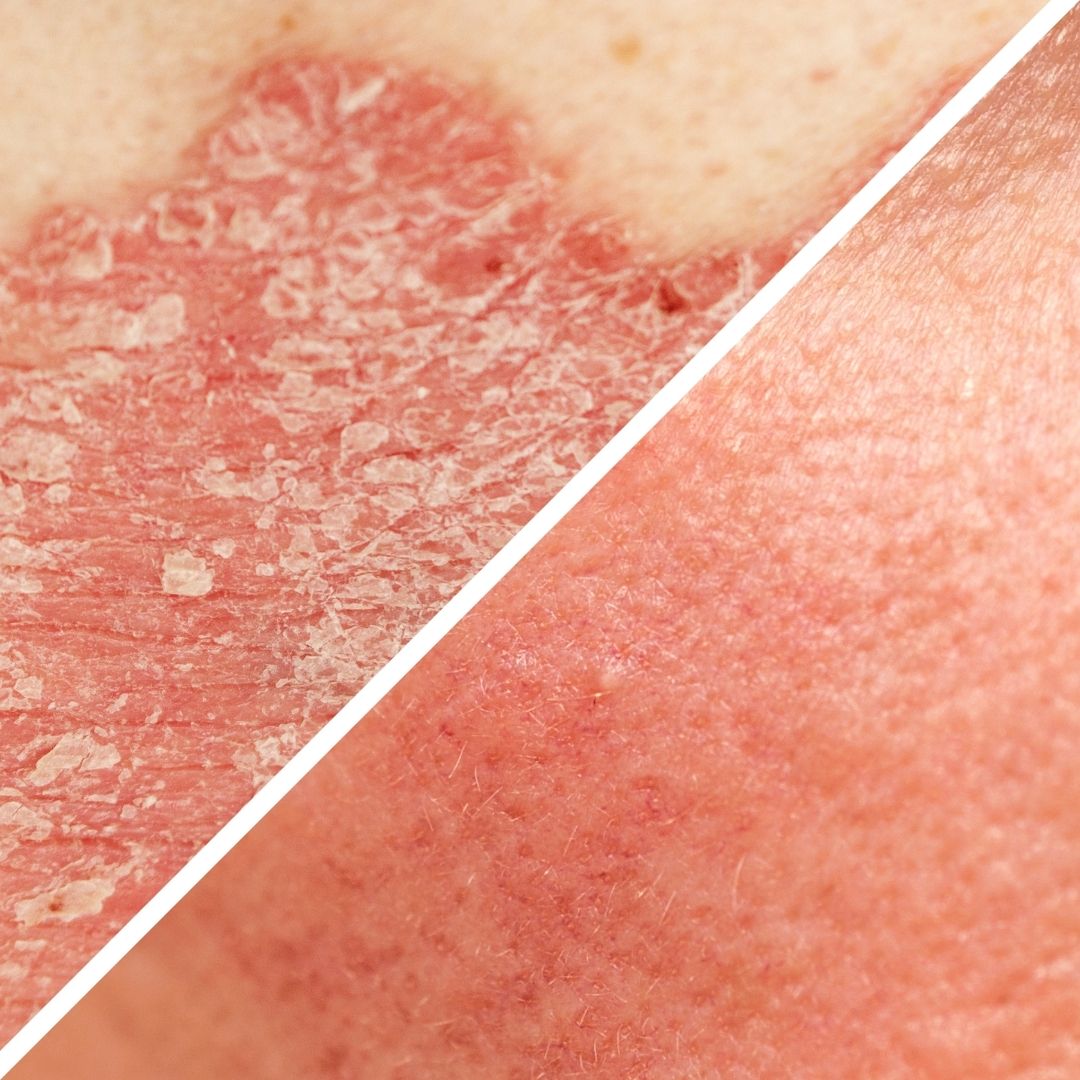By Dr. Peter Klapper Ph.D.
Skincare has been a hot topic for years in terms of how to keep your skin looking fresh and young by wearing sunscreen, using creams and serums, etc. We as humans naturally care what we look like, and when an unexplained blemish or rash appears, it’s natural to feel concerned. For those dealing with persistent skin issues, understanding the condition is crucial; read Understanding Psoriasis: Symptoms, Triggers, and Treatment.
For many, that rash can go away with a few treatments and is never to be seen again, but for people who experience chronic skin conditions such as psoriasis and rosacea, unfortunately, it could be a condition they deal with for life.
August is Psoriasis Awareness Month and is a perfect way to recognize those 7 million in the United States living with this condition. And while psoriasis can be extremely bothersome to all of your body, if you find that your irritation is focused mainly on your face, then rosacea might be the cause.
Rosacea vs Psoriasis
As we stated above, both are chronic skin conditions that affect millions. (In fact, rosacea impacts more than 14 million Americans.)
So, how are they different?
Well, psoriasis can affect your entire body and result in red, scaly plaques on your skin, among other symptoms, and rosacea causes a flushing that is typically contained to your face, targeting your nose and cheeks. In severe cases, rosacea can cause acne and thickened skin.
Both are genetic and age-related conditions, but unlike psoriasis which is caused by a faulty immune system that makes skin cells turn over too quickly, rosacea can be caused by several various factors including both immune responses and lifestyle choices such as the following:
- a specific bacterium
- a bug in the intestines
- a mite that lives on the skin
- a protein that normally protects the skin from infection
- stress
- extreme temps and too much sunlight
- hot beverages and heavy alcohol consumption
- spicy foods
While neither condition has a “cure,” there are ways to treat them. For both, it’s best to see a dermatologist to determine which skin condition you’re suffering from and then make the best decisions on treatment. Whether that means a change in lifestyle for rosacea treatment like staying out of the sun and avoiding extreme temperatures and light therapy for psoriasis. Each skin condition has different options in terms of treatment.
How to Treat with Forces of Nature
After determining what skin condition you might be dealing with, you can establish your own toolkit on how to treat a flare up. That’s where we can help you. At Forces of Nature, we understand how frustrating and upsetting it can be to deal with a skin condition which is why we have carefully developed products for both rosacea and psoriasis with your overall wellbeing in mind.
If you're interested in natural remedies, consider our Top 10 Homeopathic Ingredients for Psoriasis.
Rosacea Control
Our natural rosacea treatment features a blend of certified organic homeopathic medicines and certified organic essential oils that safely relieve itching, rashes, and irritation of rosacea, regulating skin tone while reducing redness on the skin and swollen blood vessels.
This topical natural rosacea treatment helps shrink enlarged blood vessels which cause the skin to become red and flushed as well as helps repair damaged skin.
Psoriasis Relief
Our natural psoriasis treatment contains anti-inflammatory certified organic plant extracts that strengthen the system to quickly soothe and relieve psoriasis while working with your body’s natural immunity. Penetrating deep into the skin tissue, our natural psoriasis treatment rejuvenates damaged skin without steroids or side effects making this a safe choice for your body, scalp, and overall health when you suffer from psoriasis.
This combination of medicinal plants targets the underlying cause of psoriasis, while also healing damaged skin, thereby providing a complete treatment. The end result from our natural psoriasis treatment can lead to the total reversal of symptoms.
If you're experiencing scalp issues, our article on Scalp Psoriasis might be helpful. Also, learning about the autoimmune aspects can provide deeper insight; see Unraveling the Mystery: Plaque Psoriasis and its Autoimmune Connection.
We hope this post helps raise some awareness around these two chronic skin conditions and gives you peace of mind that it can be treated.


